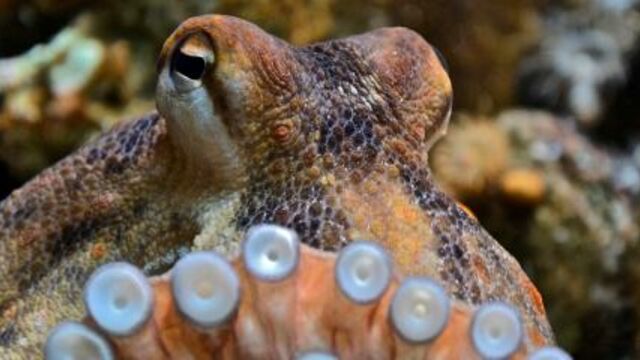Scientists Feed Octopus Ecstasy And Make Surprising Discovery

What happens when you give ecstasy to an octopus? This question may seem absurd, but it is a lot more interesting than you might think. It is the focus of a recent study that was carried out by a team of researchers at Johns Hopkins University in the United States which revealed a connection between the evolution of mankind and octopuses.
Loss of inhibition, empathy, feelings of euphoria… We already know the effects that MDMA (also known as ecstasy) has on the human brain. But are the effects the same for animals? This is the very serious question that a team of researchers at Johns Hopkins University in the United States has been looking into, although they are more specifically interested in the effects on this rather surprising animal: the octopus.
Discover our latest podcast
Their goal was to evaluate the social abilities of this cephalopod since octopuses are actually inherently antisocial animals.
More under this adMore under this ad‘Even during mating, the male will just leave his sperm and depart as quickly as possible, because if he sticks around, she’ll attack him,’ explains Dr Gül Dölen who carried out the study published in the journal Current Biology. But in a rather specific context, octopuses seem to become a bit more friendly.
‘MDMA is a great tool for investigating whether or not an octopus can become social,’ explains the expert, because this drug stimulates serotonin production. Also known as the ‘happiness hormone’, serotonin plays a fundamental role in regulating our moods and our feelings of happiness and wellbeing.
More under this adMore under this adThe role of serotonin
Dr Dölin’s team led two experiments on the California two-spot octopus, aka Octopus bimaculoides, at the Marine Biological Laboratory. The first experiment was carried out with sober octopuses and the second involved cephalopods who were under the influence of MDMA. During this experiment, they were placed in a container containing a liquified version of the drug which the animals then absorbed through their gills.
In the two cases, four males and females were then placed for 30 minutes in an aquarium with three connecting chambers. One chamber was empty, another contained a plastic action figure and a third held another octopus in a cage. Researchers observed that when the octopuses were sober, they didn’t try and interact with the caged animal. However, when they were under the influence of ecstasy, the results were completely different.
More under this adMore under this ad‘It’s not just quantitatively more time, but qualitative,’ reported Dr Dölen.
‘They tended to hug the cage and put their mouth on parts of the cage. This is very similar to how humans react to MDMA – they touch each other frequently.’
Molecular similarities
For the researchers, this was surprising because an octopus and a human's brains are very different. For cephalopods, the central brain is located around their neck and the majority of the neurons, which seem to work semi-independently, spread throughout their arms.
More under this adMore under this ad‘The brains of octopuses are more similar to those of snails than humans,’ revealed Dr Dölen.
However, after sequencing the genomes of octopuses, researchers have realised that humans’ brains work in a way that is a lot more similar to octopuses’ brains than we originally thought.
‘Despite anatomical differences between octopus and human brains, we’ve shown that there are molecular similarities in the serotonin transporter gene,’ explained Dr Dölen.
More under this adMore under this adHowever, the serotonin transporter gene is also known for being the target spot for MDMA to connect the brain cells and affect the mood.
‘These molecular similarities are sufficient to enable MDMA to induce prosocial behaviours in octopuses,’ she continued. But the team’s findings didn’t stop there.
More under this adMore under this adThe last ancestor that humans and octopuses had in common dates back to more than 500 million years ago. Therefore, this study suggests that a genetic line could have continued as evolution progressed over time. According to researchers, this is proof that serotonin, just like other neurotransmitters, which controls this social behaviour, has existed for a very long time and has been preserved over the course of evolution.
Working towards improving antidepressants
Thanks to this study, scientists now know a bit more about the evolution of serotonin signalling and its role in regulating social behaviour. Researchers are hoping that scientists will be able to use their results to develop psychiatric drugs, particularly selective serotonin reuptake inhibitors which are a type of antidepressant.
More under this adMore under this adAccording to Dr David Nutt, an expert in neuropsychopharmacology at Imperial College London, this study above all provides additional proof that emotion and empathy aren’t exclusively human traits.
‘This just proves that this is not some peculiar human characteristic, it’s not even a mammalian characteristic, it’s a characteristic of brains. It also shows that serotonin has a hugely important role in mediating social interactions right across species.’
More under this adMore under this adAs for the octopuses that participated in the study, researchers said that they had a really good experience with ecstasy seeing as though they apparently showed no sign of particular stress.